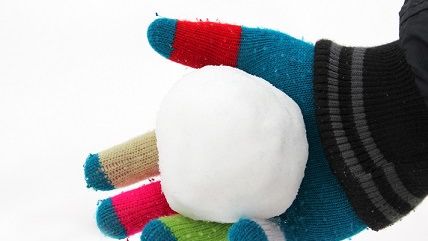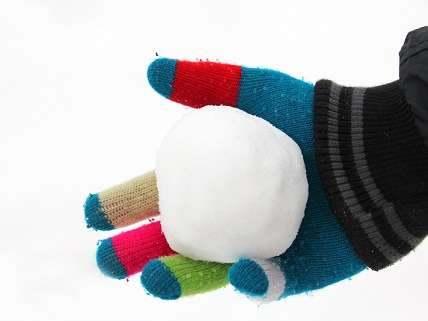Teen Locked Up for 40 Days Because He (Allegedly) Threw a Snowball Sues Cops, School
No eyewitnesses, no evidence he did it.


Eighteen-year-old Dominique Rondeau is suing Detroit Public Schools and two police officers who placed him in custody for allegedly throwing an icy snowball at a cop car after classes ended on December 16, 2013. The snowball broke the car's window, and Rondeau was tossed in a juvenile detention facility for 40 days.
Rondeau, 16 at the time of the incident, said he didn't do it. The cops didn't see him do it, either. And yet they claimed it was him—even though surveillance footage made it impossible to tell who had thrown the snowball.
According to The Detroit Free Press:
Neither officer saw Rondeau, then a 16-year-old sophomore, commit the crime. But both said they clearly spotted him on security camera footage.
When the video was played in court, however, they couldn't identify the perpetrator. The charge was swiftly dismissed, leaving Rondeau and his family relieved but seeking answers.
"The only evidence they had was the camera, and the camera couldn't see anything," Rondeau, now 18, said.
To review: there was no good evidence that Rondeau was the perpetrator of this minor crime. But it took more than a month for his lawyers to persuade a judge to release him—he spent Christmas and New Year's Eve in a detention facility.
Rondeau's lawsuit alleges false arrest and malicious prosecution. The Detroit criminal justice system certainly seems like it's out to get him; one day after the court tossed the snowball charge, cops resubmitted a previous charge of assault and resisting arrest. The charge stemmed from an earlier altercation between Rondeau and a police officer that was ignored by prosecutors because it had been improperly filed. (Losing the snowball case inspired the police to give it another try, it seems.) Rondeau was eventually found responsible of that charge.
The Free Press article notes that Rondeau is "emotionally impaired." Clearly, this is a kid with some behavioral issues. He may have acted irresponsibly around the police. He may have even thrown that snowball, although there is no evidence that he did.
But is this the best the education and law enforcement systems can do for him: turn him into a convicted criminal before he reaches adulthood? Imagine the (legitimate) contempt he must feel for institutions of authority. Over-criminalization of petty offenses does not create trust between minority communities and the cops, and it does not transform troubled teens into model citizens: it makes them more dangerous, by taking away their incentive to behave themselves.


Show Comments (42)